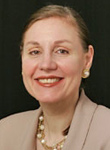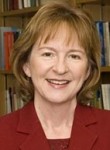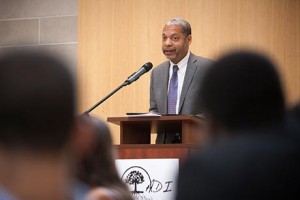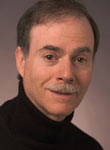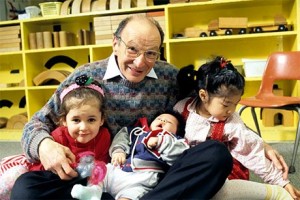by Suparna Rajaram
In this Presidential Column, it is my pleasure to bring to you my Q&A with four internationally renowned psychological scientists who will speak at the Presidential Symposium I will host during the 30th APS Annual Convention on May 25, 2018, in San Francisco. These eminent scientists — APS Past President and William James Fellow Henry L. (Roddy) Roediger, III, APS Board Member Dorthe Berntsen, APS Fellow Qi Wang, and psychological scientist Charan Ranganath — have fundamentally shaped our understanding of human memory through a wide range of perspectives, techniques, and groundbreaking discoveries. I was struck by the varied paths they have taken in their lives and education, the challenges they have faced, and the ingenuity they have brought, time and again, to scaling new heights. I was also inspired by their singular love for science, their dedication to our discipline, and their overall leadership. I hope that students and early investigators reading these interviews will enjoy the infectious optimism and strength evident in their answers and the priceless advice the speakers have offered based on their vast experience. –APS President Suparna Rajaram
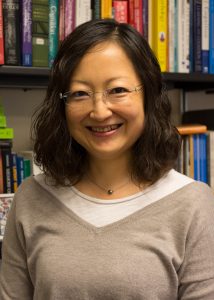
What piqued your interest in the general area of your research?
Here is a description of how I came to study autobiographical memory and culture, from my book The Autobiographical Self in Time and Culture (2013):
“About fifteen years ago, in mid 1990s, when I went to graduate school in the Psychology Department at Harvard, I had no idea of what autobiographical memory was. Although I had attended the best university in China and had gained a Bachelor’s degree in psychology, the term meant second to nothing to me. At that time, the study of autobiographical memory in Western psychology had grown into a dynamic, interdisciplinary field with exciting discoveries, theoretical debates, controversial issues, and intriguing phenomena. It had drawn researchers from diverse disciplines with such varied interests in human memory in natural contexts, in life histories and narrative self-making, and in the practical implications of memory in clinical, legal, and everyday settings. Autobiographical memory was not a subject of research in China then, however. Neither was autobiography an eminent genre in Chinese literature. I was amazed by the large sections of autobiographies and memories in the Cambridge bookstores, a scene foreign and somewhat bizarre to me. What is the driving force behind the cultural difference in the popularity of autobiographical memory in research and autobiography in pop culture more generally? This question has motivated my research ever since.”
Can you share with us a little about your educational path, and whether/how it led you to pursue research in psychological science?
Both my parents were engineers before their retirement. So my pursuit in psychology was informed by early exposure outside home. When I was 11, I was admitted into a boarding school that was one of the top-ranked middle-high schools in our province. The school was very far away from where we lived. So I stayed with my aunt’s family for about a year before a dorm-bed spot opened up (That was back in the early 1980s when China was still in economic devastation). My aunt was a psychology professor at a teacher’s college. It was through her that I first learned about psychology. I read many books in general and developmental psychology from my aunt’s collection.
Naturally, when I was later admitted to Peking University (or Beijing University), I chose to be a psychology major.
Did you take any detours along the journey to where you are today, and if so, how would you describe the significance of these markers?
Although I set my foot in psychology at a fairly young age (primarily due to my aunt’s influence), I took some major detours before arriving to where I am today.
At the time when I graduated from college, in 1989, China was undergoing historical transformations in every aspect of the society — economically, politically, and culturally. Many new career opportunities emerged that my generation who grew up in Communist China had never heard of. They attracted many young and adventurous people and I was one of them. I had worked in foreign-invested hotels (a brand new concept at the time), in public relations and sales (where my psychology training was somewhat useful), and I had worked for a major French company in Beijing, doing administrative work.
Six years post-graduate, I found myself missing psychology and wanted to get back to my “roots.” So I started applying to graduate programs in Europe and the United States, which eventually led me to Harvard. (A side story: My original plan was to study developmental psychology at University of Geneva, where Jean Piaget had taught. I was admitted into the program and in fact went there, but then found out that my French was inadequate for me to begin the graduate work right away).
The detours were well worth it: They made me realize what I wanted for my career and where my intellectual strengths were. They allowed me to stay focused during my graduate study and remain motivated. I formally enrolled in the psychology PhD program at Harvard in 1996 and received my degree in 2000. I then joined the faculty in Human Development at Cornell.
What have been the most exciting parts of your scientific career?
The pursuit itself is the most exciting part: coming up with interesting and original ideas, brain-storming with students and collaborators, persevering in the data-collection process, writing and thinking through writing. These are all exciting parts of the scientific endeavor.
Did you face any obstacles in pursuing your scientific projects?
Nothing unusual. Working with a small and transient community to recruit children and families, especially ethnic minority families, and trying to follow them longitudinally, has been perhaps the biggest challenge in our projects.
How have you balanced research demands with teaching and administrative responsibilities?
I took the role of department chair this past July. I have come to appreciate the complexity of the job. Most of the work is done behind the scene. However, it is truly rewarding to lead a dynamic department with brilliant colleagues and outstanding students, and to work closely with the faculty to implement critical changes to build on and extend the Department’s scholarly excellence and to maintain and improve its leadership in research, teaching, and outreach.
To balance research with my teaching and chair responsibilities, I set aside time (two mornings each week) for writing. I also try to do what the Chinese call 见缝插针 — meaning literally sticking in a pin wherever there’s room — to make use of every bit of time, with the goal of writing one paragraph a day.
I have an active lab of graduate and undergraduate students, with many ongoing projects at various stages. We hold a weekly lab meeting to discuss the projects and address any issues. We also use the time to talk about new ideas.
I make sure to remain accessible over emails to students in my lab and my class, and make myself available whenever an emergency meeting is required.
What/who have been major influences in your academic career?
So many! My aunt through whom I had the first exposure to psychology. My graduate school advisors Michelle Leichtman and Shep White who helped me set my career path. There are then many informal mentors with whom I have had the fortune to work or collaborate, including Steve Ceci, Michael Ross, Robyn Fivush, Martin Conway, David Pillemer, Carole Peterson, among others.
What’s been your guiding compass in your academic career?
Focus on the process, not the outcome. This makes the scientific pursuit more exciting and enjoyable, and makes obstacles and temporary failures (e.g., rejections from journals) less interruptive or upsetting. This compass also allows me to see what would be usually considered to be an outcome (e.g., tenure) as part of the process, and thus not to get stressed about it.
What advice do you have for handling rejections from journals?
There can be frustration, but never give up. If you truly believe in your work, revise and improve the paper based on reviewer feedback and submit it elsewhere.
Careful preparation is key: Submit a paper as if it were the final version that no further changes could be made. This is out of respect for the journals, the reviewers, and our profession.
What advice, in general, would you give budding scientists around the world?
Stay attuned to the field and be mindful of the everyday life, in the process of developing exciting ideas that are theory driven, evidence based, and of real-world relevance. Focus on and enjoy the process of your scientific pursuit.


